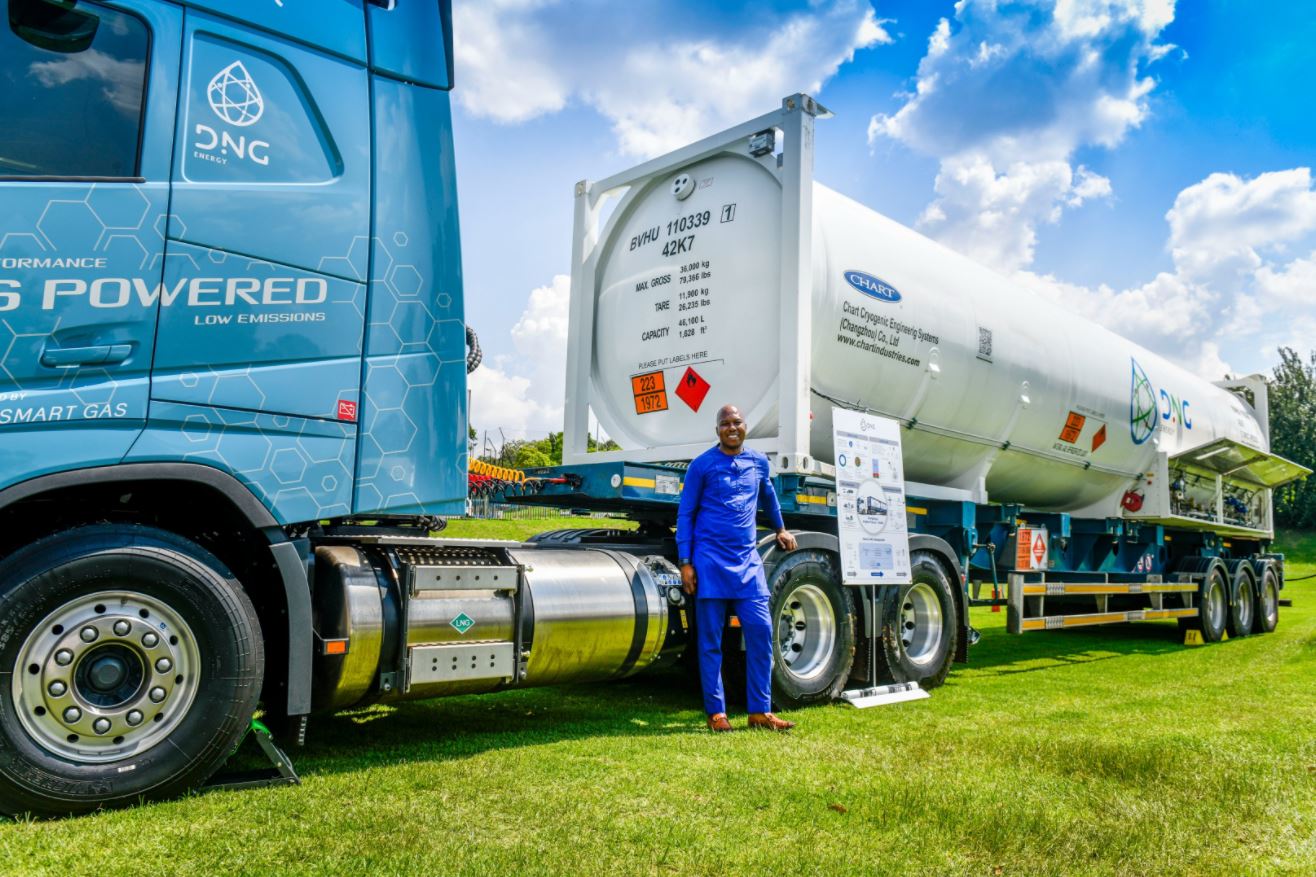South African LNG firm DNG Energy said it has secured approvals from the country’s energy regulator to import and store liquefied natural gas at five sites.
The licenses approved by the National Energy Regulator of South Africa (NERSA) would allow DNG Energy to operate LNG storage facilities in Eastern Cape, Gauteng, Mpumalanga, and Western Cape, it said in a statement.
The company has previously acquired the gas importation license from NERSA and International Trade Administration Commission to import LNG.
DNG Energy has recently received what it says is South Africa’s first-ever commercial liquefied natural gas shipment. The LNG ISO tank shipment arrived at the Port of Ngqura, Gqeberha, from Rotterdam.
Also, the firm said the shipment is a precursor to the commissioning of the company’s first floating storage unit in the first quarter of 2022.
It has commissioned South African shipyards in Durban to build an 8,000 ton LNG barge that would work at Coega, DNG previously said.
DNG has also recently signed two deals aimed at introducing LNG as an alternative to diesel in the country’s transport sector.
Large LNG network in the making
The firm is creating a pan-African LNG supply network which it says includes an investment of $5 billion.
These new licenses would help the company in realizing this plan and allow it to play a “significant part in promoting the orderly development of the gas industry.”
South African entrepreneur and DNG’s CEO Aldworth Mbalati, said the company aims to
proceed with the implementation of its plans “as soon as possible.”
According to Mbalati, DNG Energy is looking to supply LNG to other ships via ship-to-ship (STS) transfers within the coastal areas.
Through the FSU, DNG Energy would have two vessels that would be used to transport LNG ISO containers to the port of Nqgura.
Moreover, Mbalati said the use of LNG would support the fuel cost management for electricity generation.
“Over the next few years, LNG has the potential to drive significant growth and
job creation, while helping South Africa meet its targets in reducing greenhouse gas
emissions by as much as 30% to 40%,” he said.

